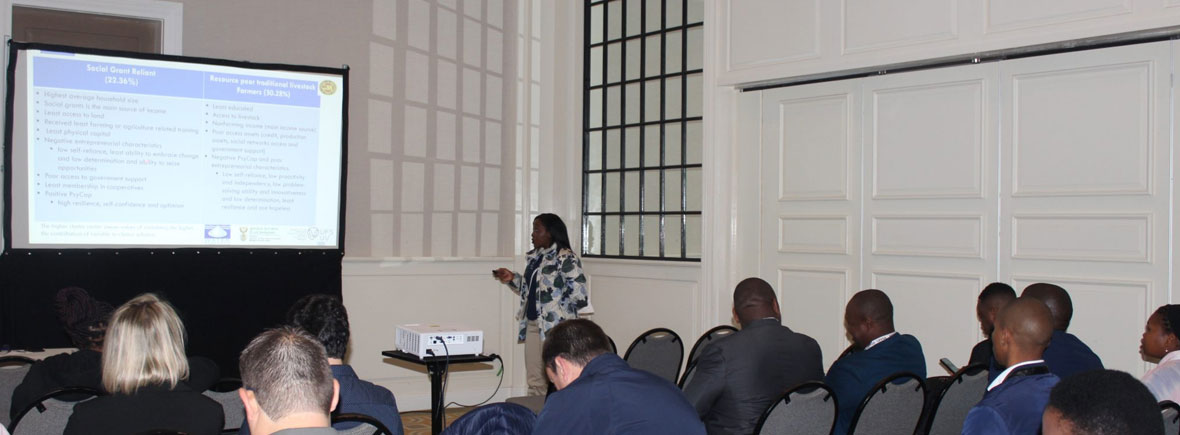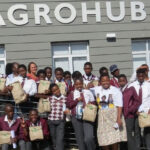
SU well represented at 59th AEASA conference
From 2 to 5 October 2022, colleagues from the Agricultural Economics Department at Stellenbosch University (SU) participated in the 59th annual conference of the Agricultural Economics Association of South Africa (AEASA) in Swakopmund, Namibia. Under the conference theme “How recent value chain disruptions shaped agri-food systems in sub-Saharan Africa”, delegates were able to share expertise and explore opportunities for collaboration.
SU master’s student Desmond Annandale, supervised by Profs André Jooste and Johan van Rooyen, presented a paper from his thesis. The paper examined the use of composite indices in identifying potential agricultural export markets in the African region, more particularly the African Continental Free Trade Area (AfCFTA), which is tasked to expand intra-African trade and integration. Desmond used a country priority index comprising three dimensions known to affect an export destination’s trade potential (namely market conditions, business environment and logistical conditions). His analysis confirmed the index as a valuable first step towards identifying export potential to African countries. However, some deviations from actual trade do occur due to geographical proximity from South Africa, the availability of a product in the home country, the competitiveness of South African products relative to other countries, and the expansion of South African retailers to other African countries.
SU representatives also participated in a panel discussion on the effects of Covid-19, climate shocks and the Russian-Ukraine war, or the so-called “perfect storm” for global food systems. The session was organised by the University’s Bureau for Food and Agricultural Policy (BFAP). The discussion centred on the rapid rise in global agricultural commodity prices, uncertainty in futures markets for agricultural products, rising input and energy prices, and uncertainty regarding current and future market dynamics and its implication for food systems. Highlighting the current effects of external shocks on food systems, the panel provided a global overview and presented specific case studies for Namibia and South Africa. In addition, they debated how alternative future outcomes may inform the dos and don’ts for governments and strategic private-sector decisions.
The event also saw Dr Melissa van der Merwe, AEASA president and SU lecturer, deliver her inaugural presidential address, in which she explored whether Agricultural Economics could be considered a discipline in crisis. Unpacking the status of the discipline in terms of teaching, research, and the AEASA, she concluded that stakeholders in Agricultural Economics training and research need to carefully manage their contributions and efforts to continue delivering graduates who are equipped with relevant skills and knowledge to meet the changing needs of the market.



